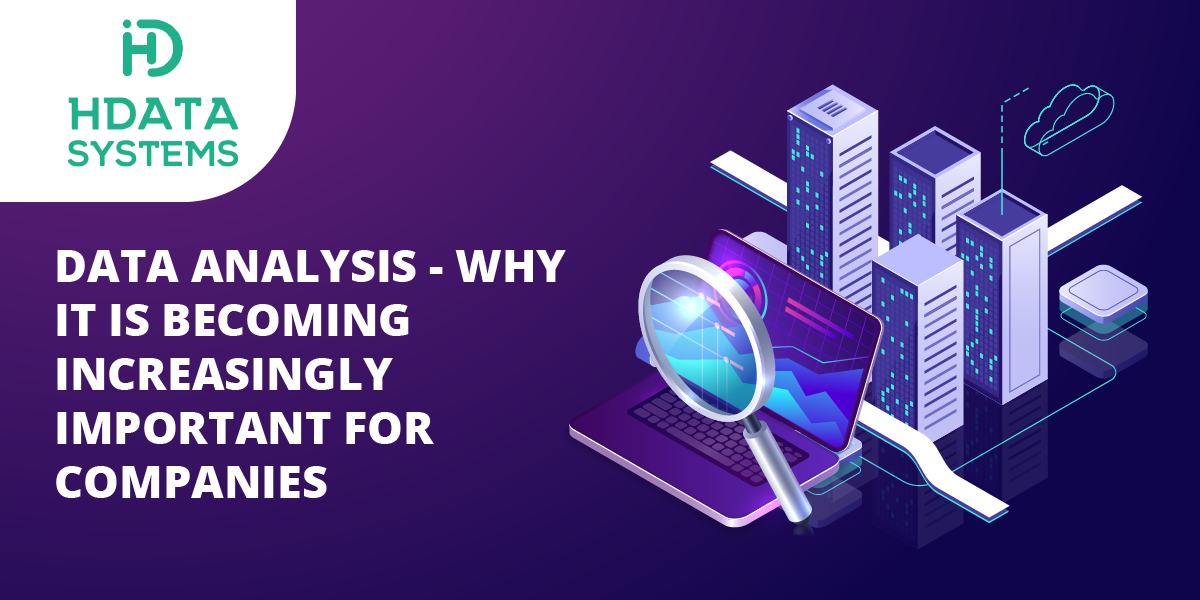Nowadays, the buzzwords data analytics,
data science, and big data dominate the media - with good reason. With every transaction, booking, and use of services, we generate data that can now be used better than ever. Data analytics allows very large amounts of data from different sources to be combined, analyzed, and evaluated.
This digitalization of data analysis began with the spread of computers, the associated increase in computing power, and made another big leap with the introduction of SQL in the 1980s.
Since then, the hardware and software have continued to increase in performance. The Internet, through the multitude of (freely) available sources and the expansion of digitization to more and more areas of life, have also contributed to the fact that we now have an almost infinite amount of data.
More power to Data Scientists
The picture in data analysis is still strongly characterized by complicated evaluation tools and a few highly specialized data workers. These specialists are busy every day to find the right data, combine it, evaluate it, draw the right conclusions from the amount of data, and present it to the decision-makers in the company.
Many large companies optimize their everyday business with the help of data. The German sports brand Adidas, for example, examines sales data of products, such as model, color, and size, includes user surfing behavior and marketing activities, and uses this to determine a data-based forecast. In this way, the company optimizes its cooperation with suppliers as well as its own production and marketing measures in order to react agile to rising or falling demand and thus save costs and time.
However, since more and more data are being generated in more and more areas that have the potential to provide insight if they are only interpreted correctly, the data specialists quickly reach their time limits. In addition, not every company has the capacity to employ highly sought-after analysts.
One solution to this is offered by intuitive self-service software that can be used to merge data from different sources and formats and to create individually tailored workflows easily and flexibly without having to program them.
These employees, who evaluate data but do not program themselves, are called Citizen
Data Scientists. They do not have data science or IT background but are familiar with the basic functions and models for data evaluation, carry out analyzes themselves, make predictions, and data-based decisions. This is becoming increasingly important in a globalized, connected world - in order to open up markets, optimize processes, and improve products and customer loyalty.
For many companies, Citizen Data Scientists offer an optimal solution for doing data analysis and not leaving the potential untapped. Professional data scientists and data science and analytic companies will also be required for highly specialized tasks. However, Citizen Data Scientists can actively support them in many areas of application - after all, you don't have to be a professional car mechanic to drive a car.
Data analysis is becoming increasingly important - let's get ready for change
In addition to the question of qualified personnel, companies now have to face another challenge: the data jungle. The multitude of data and data sources is both a blessing and a curse.
Big data and increased storage capacities mean that more and more information can be secured, but the trick is to understand which data is suitable for which type of data analysis - and which is not. In addition, the databases must be properly maintained and protected and, above all, used in accordance with data protection guidelines.
So what does the future look like with the growing importance of data analysis?
First of all, companies have to get ready for change. Old processes are broken and increasingly replaced by automated ones in everyday business. Employees have to learn to trust them and make the right decisions thanks to the analysis reports.
Once these initial growing pains are overcome, companies will be able to work more efficiently and effectively. In any case, it is an advantage that enormous data treasures are already buried deep in the databases and structures of companies that are just waiting to be lifted, cleaned up, and used. Now it is only a matter of activating the employees, introducing them to the world of data analysis, and exploiting the analysis potential with both hands.
The fact is that in the future, no company will be able to avoid data analysis in order to be and remain competitive. The credo applies in the 21st century: the more employees are able to analyze data, the better.
Harnil Oza is a CEO of HData Systems - Data Science Company & Hyperlink InfoSystem a top mobile app development company in Canada, USA, UK, and India having a team of best app developers who deliver best mobile solutions mainly on Android and iOS platform and also listed as one of the top app development companies by leading research platform.
